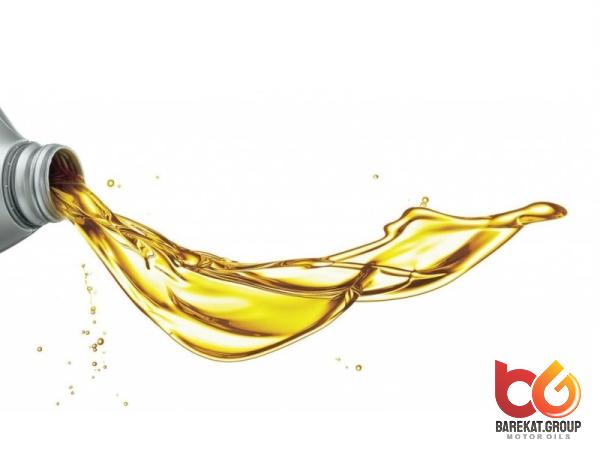Engine oil is a critical component in maintaining the performance, efficiency, and longevity of an internal combustion engine. With the diverse range of engine types and operating conditions, it is essential to understand the different types of engine oil available and their specific applications. One of the primary classifications of engine oil is based on its viscosity, which is a measure of its resistance to flow. Viscosity is typically denoted by a number followed by the letter “W,” such as 5W-30 or 10W-40. The first number represents the oil’s viscosity at low temperatures, while the second number represents its viscosity at high temperatures. Lower viscosity oils (e.g., 0W-20) offer improved fuel efficiency and better cold-start performance, while higher viscosity oils (e.g., 10W-40) provide better protection and maintain viscosity under high-temperature conditions. Another significant factor in engine oil diversity is the formulation or type of oil base. This can include conventional mineral-based oils, semi-synthetic oils, and fully synthetic oils. Conventional mineral-based oils are derived from petroleum and undergo limited refinement. While they are affordable, they offer less heat resistance and lower performance in extreme conditions. Semi-synthetic oils are a blend of mineral and synthetic base stocks, offering a balance between affordability and performance. Fully synthetic oils, on the other hand, are synthesized through chemical processes and offer superior performance, durability, and engine protection. They also possess better resistance to oxidation, thermal breakdown, and viscosity changes, making them suitable for high-performance engines and extreme conditions. Engine oil also comes in different formulations to address specific engine requirements, such as high mileage oils and synthetic blends. High mileage oils contain additives that rejuvenate and protect older engines with more than 75,000 miles on the odometer. These additives help to reduce oil consumption, prevent leaks, and minimize the impact of wear and deposits.
Engine oil
 Synthetic blends, as the name suggests, combine synthetic and conventional base oils to offer improved protection and performance over conventional oils, but at a lower price compared to fully synthetic oils. In addition to the different types of engine oil, there are also specific certifications and specifications that oils must meet to ensure they are suitable for use in modern engines. The American Petroleum Institute (API) service categories, such as API SN or API SP, indicate that the oil meets the industry’s latest standards. The International Lubricant Standardization and Approval Committee (ILSAC) also provides specifications for gasoline engines, such as GF-6, which denotes improved fuel economy and protection against low-speed pre-ignition (LSPI). Similarly, diesel engines have their own set specifications, such as CJ-4 or CK-4, which encompass improved wear protection, soot control, and emission performance. Engine oil diversity extends beyond the types and formulations. It also encompasses specialized oils for specific applications. For instance, there are oils designed for high-performance engines used in sports cars or racing vehicles. These oils typically offer exceptional shear stability, high-temperature protection, and reduced friction to optimize performance. On the other end of the spectrum, there are oils designed for heavy-duty diesel engines, which require superior protection against wear, soot, and deposits. Furthermore, with the increasing demand for eco-friendly and sustainable solutions, engine oil diversity now includes environmentally friendly options. Engine oils that are labeled as environmentally-friendly or bio-based are formulated with renewable resources and have a reduced impact on the environment. These oils provide similar performance levels while reducing the dependency on fossil fuels and minimizing the carbon footprint. In conclusion, the wide range of engine oil diversity is essential to cater to the different requirements of various engines and operating conditions. Factors such as viscosity, base oil type, formulation, and certifications all play a vital role in determining the suitability of an engine oil for a specific application. Whether it is for everyday commuter vehicles, high-performance engines, heavy-duty machinery, or environmentally conscious solutions, the availability of diverse engine oils ensures optimal engine performance, efficiency, and longevity.
Synthetic blends, as the name suggests, combine synthetic and conventional base oils to offer improved protection and performance over conventional oils, but at a lower price compared to fully synthetic oils. In addition to the different types of engine oil, there are also specific certifications and specifications that oils must meet to ensure they are suitable for use in modern engines. The American Petroleum Institute (API) service categories, such as API SN or API SP, indicate that the oil meets the industry’s latest standards. The International Lubricant Standardization and Approval Committee (ILSAC) also provides specifications for gasoline engines, such as GF-6, which denotes improved fuel economy and protection against low-speed pre-ignition (LSPI). Similarly, diesel engines have their own set specifications, such as CJ-4 or CK-4, which encompass improved wear protection, soot control, and emission performance. Engine oil diversity extends beyond the types and formulations. It also encompasses specialized oils for specific applications. For instance, there are oils designed for high-performance engines used in sports cars or racing vehicles. These oils typically offer exceptional shear stability, high-temperature protection, and reduced friction to optimize performance. On the other end of the spectrum, there are oils designed for heavy-duty diesel engines, which require superior protection against wear, soot, and deposits. Furthermore, with the increasing demand for eco-friendly and sustainable solutions, engine oil diversity now includes environmentally friendly options. Engine oils that are labeled as environmentally-friendly or bio-based are formulated with renewable resources and have a reduced impact on the environment. These oils provide similar performance levels while reducing the dependency on fossil fuels and minimizing the carbon footprint. In conclusion, the wide range of engine oil diversity is essential to cater to the different requirements of various engines and operating conditions. Factors such as viscosity, base oil type, formulation, and certifications all play a vital role in determining the suitability of an engine oil for a specific application. Whether it is for everyday commuter vehicles, high-performance engines, heavy-duty machinery, or environmentally conscious solutions, the availability of diverse engine oils ensures optimal engine performance, efficiency, and longevity.
Specifications of Engine oil
 Engine Oil Diversity: Meeting the Unique Needs of Different Engines and Applications 1. Understanding Viscosity: Choosing the Right Fit for Engine Performance Engine oil viscosity plays a crucial role in maintaining engine performance in various operating conditions. Lower viscosity oils, such as 0W-20 or 5W-30, provide better fuel efficiency and improved cold-start performance, making them suitable for everyday commuter vehicles. Higher viscosity oils, such as 10W-40 or 20W-50, offer better protection and maintain viscosity under high-temperature conditions, making them ideal for heavy-duty applications or older engines with higher mileage. Understanding the viscosity requirements of different engines enables businesses to offer the right oil options to customers. 2. Exploring Oil Base Formulations: Finding the Balance between Performance and Affordability Engine oils come in different base formulations, including conventional mineral-based oils, semi-synthetic oils, and fully synthetic oils. Conventional mineral-based oils are affordable but offer limited resistance to heat and may not perform well under extreme conditions. Semi-synthetic oils blend mineral and synthetic base stocks, striking a balance between affordability and performance. Fully synthetic oils, synthesized through chemical processes, provide superior performance, engine protection, and resistance to oxidation and viscosity changes. Businesses can offer a range of oil options to cater to customers with varying budget constraints and engine performance requirements. 3. Specialized Formulations for Specific Engine Needs: Meeting the Demands of High-Performance and Heavy-Duty Engines Certain engines have unique requirements that necessitate specialized oil formulations. High-performance engines in sports cars or racing vehicles require oils with exceptional shear stability, high-temperature protection, and reduced friction to optimize performance and minimize wear. Heavy-duty diesel engines, commonly used in commercial trucks or industrial machinery, demand oils formulated to deliver superior wear protection, soot control, and deposit prevention. By offering specialized oil formulations, businesses can cater to customers with specific engine types, thus expanding their market reach. 4. Targeting High Mileage Vehicles: Providing Engine Rejuvenation and Protection As vehicles age, their engines may require additional protection and maintenance. High mileage oils are specifically formulated with additives that rejuvenate and protect older engines with over 75,000 miles on the odometer. These oils help reduce oil consumption, prevent leaks, minimize the impact of wear and deposits, and offer prolonged engine life. Positioning high mileage oils as a solution for aging vehicles can attract customers looking to extend the lifespan of their engines. 5. Synthetic Blends: A Balanced Option for Enhanced Performance and Affordability Synthetic blends are a popular choice for those seeking improved engine protection and performance at a lower price point than fully synthetic oils.
Engine Oil Diversity: Meeting the Unique Needs of Different Engines and Applications 1. Understanding Viscosity: Choosing the Right Fit for Engine Performance Engine oil viscosity plays a crucial role in maintaining engine performance in various operating conditions. Lower viscosity oils, such as 0W-20 or 5W-30, provide better fuel efficiency and improved cold-start performance, making them suitable for everyday commuter vehicles. Higher viscosity oils, such as 10W-40 or 20W-50, offer better protection and maintain viscosity under high-temperature conditions, making them ideal for heavy-duty applications or older engines with higher mileage. Understanding the viscosity requirements of different engines enables businesses to offer the right oil options to customers. 2. Exploring Oil Base Formulations: Finding the Balance between Performance and Affordability Engine oils come in different base formulations, including conventional mineral-based oils, semi-synthetic oils, and fully synthetic oils. Conventional mineral-based oils are affordable but offer limited resistance to heat and may not perform well under extreme conditions. Semi-synthetic oils blend mineral and synthetic base stocks, striking a balance between affordability and performance. Fully synthetic oils, synthesized through chemical processes, provide superior performance, engine protection, and resistance to oxidation and viscosity changes. Businesses can offer a range of oil options to cater to customers with varying budget constraints and engine performance requirements. 3. Specialized Formulations for Specific Engine Needs: Meeting the Demands of High-Performance and Heavy-Duty Engines Certain engines have unique requirements that necessitate specialized oil formulations. High-performance engines in sports cars or racing vehicles require oils with exceptional shear stability, high-temperature protection, and reduced friction to optimize performance and minimize wear. Heavy-duty diesel engines, commonly used in commercial trucks or industrial machinery, demand oils formulated to deliver superior wear protection, soot control, and deposit prevention. By offering specialized oil formulations, businesses can cater to customers with specific engine types, thus expanding their market reach. 4. Targeting High Mileage Vehicles: Providing Engine Rejuvenation and Protection As vehicles age, their engines may require additional protection and maintenance. High mileage oils are specifically formulated with additives that rejuvenate and protect older engines with over 75,000 miles on the odometer. These oils help reduce oil consumption, prevent leaks, minimize the impact of wear and deposits, and offer prolonged engine life. Positioning high mileage oils as a solution for aging vehicles can attract customers looking to extend the lifespan of their engines. 5. Synthetic Blends: A Balanced Option for Enhanced Performance and Affordability Synthetic blends are a popular choice for those seeking improved engine protection and performance at a lower price point than fully synthetic oils.
Buy Engine oil
 These blends combine synthetic and conventional oil base stocks to strike a balance between performance and affordability. By offering synthetic blends, businesses can cater to customers looking for an intermediate option that provides enhanced protection without the higher cost of fully synthetic oils. 6. Meeting Industry Standards: Certification and Compliance Engine oils must meet specific certifications and specifications to ensure their suitability for use in modern engines. The American Petroleum Institute (API) service categories, such as API SN or API SP, indicate that the oil meets the industry’s latest standards. The International Lubricant Standardization and Approval Committee (ILSAC) provides specifications for gasoline engines, while diesel engines have their set specifications. Ensuring that the oils offered comply with these standards gives customers confidence in their quality and performance. 7. Environmental Considerations: Driving towards Sustainability with Eco-Friendly Options With the increasing focus on sustainability, businesses can offer environmentally friendly engine oils that align with customers’ growing concerns. Bio-based or environmentally friendly engine oils are formulated with renewable resources, reducing reliance on fossil fuels and minimizing the carbon footprint. These oils provide similar performance levels to conventional options while addressing eco-conscious consumers’ demands and contributing to a greener future. 8. Targeting Niche Markets: Specialty Oils for Unique Applications Some applications require specialized lubrication due to their unique operating conditions. For example, in the aviation industry, jet engines require specialized turbine oils that can withstand extreme temperatures and pressures. Similarly, marine engines require lubricants that offer effective corrosion protection in moist environments. By offering specialty oils for niche markets, businesses can tap into specific industries and address their unique lubrication needs. 9. Educating and Assisting Customers: Enhancing Overall Customer Experience Optimizing engine performance is a priority for vehicle owners. By providing detailed information and guidance on engine oil diversity, businesses can help customers make informed decisions about the right oil for their specific engines and operating conditions.
These blends combine synthetic and conventional oil base stocks to strike a balance between performance and affordability. By offering synthetic blends, businesses can cater to customers looking for an intermediate option that provides enhanced protection without the higher cost of fully synthetic oils. 6. Meeting Industry Standards: Certification and Compliance Engine oils must meet specific certifications and specifications to ensure their suitability for use in modern engines. The American Petroleum Institute (API) service categories, such as API SN or API SP, indicate that the oil meets the industry’s latest standards. The International Lubricant Standardization and Approval Committee (ILSAC) provides specifications for gasoline engines, while diesel engines have their set specifications. Ensuring that the oils offered comply with these standards gives customers confidence in their quality and performance. 7. Environmental Considerations: Driving towards Sustainability with Eco-Friendly Options With the increasing focus on sustainability, businesses can offer environmentally friendly engine oils that align with customers’ growing concerns. Bio-based or environmentally friendly engine oils are formulated with renewable resources, reducing reliance on fossil fuels and minimizing the carbon footprint. These oils provide similar performance levels to conventional options while addressing eco-conscious consumers’ demands and contributing to a greener future. 8. Targeting Niche Markets: Specialty Oils for Unique Applications Some applications require specialized lubrication due to their unique operating conditions. For example, in the aviation industry, jet engines require specialized turbine oils that can withstand extreme temperatures and pressures. Similarly, marine engines require lubricants that offer effective corrosion protection in moist environments. By offering specialty oils for niche markets, businesses can tap into specific industries and address their unique lubrication needs. 9. Educating and Assisting Customers: Enhancing Overall Customer Experience Optimizing engine performance is a priority for vehicle owners. By providing detailed information and guidance on engine oil diversity, businesses can help customers make informed decisions about the right oil for their specific engines and operating conditions.
Engine oil + buy and sell
 This educational approach builds trust and loyalty, enhancing the overall customer experience. Offering resources such as online guides, in-store displays, and knowledgeable staff can further assist customers in choosing the most suitable engine oil. 10. Building Brand Reputation: Quality and Reliability The engine oil business thrives on building a strong brand reputation based on quality and reliability. By offering a diverse range of engine oils, businesses can cater to a wider customer base, addressing different engine requirements and applications. Consistently providing high-quality oils that meet industry standards and customer expectations fosters a positive brand perception that can lead to customer loyalty and recommendations. 11. Leveraging Technology and Innovation: Staying Ahead in the Market The engine oil industry continues to evolve with advancements in technology and lubricant innovation. Businesses that stay up-to-date with these developments can gain a competitive edge. Keeping an eye on emerging trends, such as the use of nanotechnology or additives for further engine optimization, enables businesses to offer cutting-edge solutions and position themselves as leaders in the market. 12. Collaborating with Automotive Manufacturers: OEM Endorsements Collaborating with automotive manufacturers and securing original equipment manufacturer (OEM) endorsements can significantly enhance a business’s reputation and credibility. Getting their engine oils approved for use in specific vehicle models and promoting these endorsements can attract customers who value using OEM-recommended products. These partnerships also provide opportunities for joint marketing efforts and access to a broader customer base. In conclusion, engine oil diversity is a critical aspect of the lubricant industry, meeting the unique needs of different engines and applications. Businesses that understand and leverage this diversity can offer a comprehensive range of engine oils that cater to various operating conditions, performance requirements, and budget constraints. By continually adapting to industry standards, addressing environmental concerns, and staying ahead through innovation, businesses can build a strong brand reputation and provide customers with the high-quality lubricants they need to optimize engine performance, efficiency, and longevity.
This educational approach builds trust and loyalty, enhancing the overall customer experience. Offering resources such as online guides, in-store displays, and knowledgeable staff can further assist customers in choosing the most suitable engine oil. 10. Building Brand Reputation: Quality and Reliability The engine oil business thrives on building a strong brand reputation based on quality and reliability. By offering a diverse range of engine oils, businesses can cater to a wider customer base, addressing different engine requirements and applications. Consistently providing high-quality oils that meet industry standards and customer expectations fosters a positive brand perception that can lead to customer loyalty and recommendations. 11. Leveraging Technology and Innovation: Staying Ahead in the Market The engine oil industry continues to evolve with advancements in technology and lubricant innovation. Businesses that stay up-to-date with these developments can gain a competitive edge. Keeping an eye on emerging trends, such as the use of nanotechnology or additives for further engine optimization, enables businesses to offer cutting-edge solutions and position themselves as leaders in the market. 12. Collaborating with Automotive Manufacturers: OEM Endorsements Collaborating with automotive manufacturers and securing original equipment manufacturer (OEM) endorsements can significantly enhance a business’s reputation and credibility. Getting their engine oils approved for use in specific vehicle models and promoting these endorsements can attract customers who value using OEM-recommended products. These partnerships also provide opportunities for joint marketing efforts and access to a broader customer base. In conclusion, engine oil diversity is a critical aspect of the lubricant industry, meeting the unique needs of different engines and applications. Businesses that understand and leverage this diversity can offer a comprehensive range of engine oils that cater to various operating conditions, performance requirements, and budget constraints. By continually adapting to industry standards, addressing environmental concerns, and staying ahead through innovation, businesses can build a strong brand reputation and provide customers with the high-quality lubricants they need to optimize engine performance, efficiency, and longevity.
Your comment submitted.